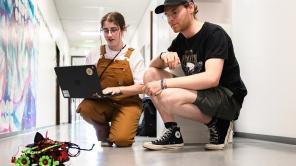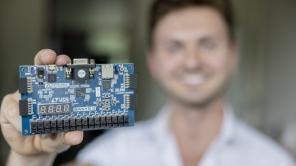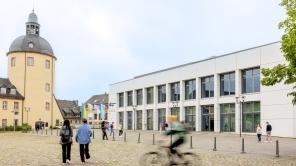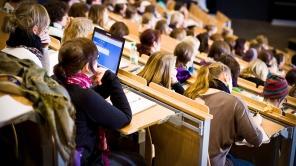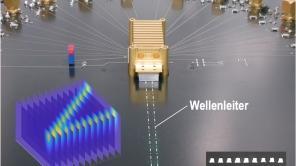Department of Electrical Engineering and Computer Science
Electrical engineering and computer science - a strong pair! Few other scientific disciplines stand together like electrical engineering and computer science for the infrastructure that forms the lifeline of modern industrial societies.
From power plants to microprocessors, from ICE trains to small cars, from rolling mill control systems to cell phones, everywhere hardware and software, electrical engineering and computer science ensure the smooth, safe and convenient use of technology.
The Department of Electrical Engineering and Computer Science at the University of Siegen is one of the few institutions in Germany that combines research and teaching in electrical engineering and computer science in one unit.

Focal points of the Department of Electrical Engineering and Computer Science
The Department of Electrical Engineering and Computer Science stands for future-oriented education in the fields of automation, communication technology, embedded systems, software development and artificial intelligence. The focus is on practical teaching, interdisciplinary research and close cooperation with industry. In this way, we prepare our students specifically for the technological challenges of tomorrow.

